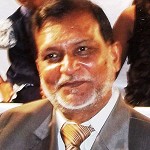
SEO Sai Gr. Hosp.
210657 Points
Joined July 2016
Who can opt for Presumptive Tatation
Resident Hindu Undivided Families (HUFs) and resident partnership firms can opt for this scheme. However, limited liability partnership (LLP), businesses that claim benefits for being located in special economic zones or backward areas, and those whose income is from commission or brokerage fees (such as insurance agents or mutual fund advisers) cannot adopt this scheme.
From AY2017-18, the scheme will cover businesses with a total turnover of less than Rs2 crore during a financial year. Those in the business of plying, hiring or leasing goods carriages can avail PTS under section 44AE of the Act.
Calculating Presumptive Tax
When a business opts for PTS, if the above mentioned conditions are satisfied, it can estimate its income at 8% of the total turnover for AY2017-18. For instance, if the turnover of the business was Rs1.5 crore in FY2016-17, its income chargeable to tax under PTS would be Rs12 lakh (8% of Rs1.5 crore). However, the assessee is allowed to declare income at a higher rate than the minimum prescribed limit of 8% of the total turnover.
Apart from businesses, professionals such as doctors, lawyers, architects, interior designers and others—who are governed or regulated by an institute or body—can also choose the PTS to file their returns. However, to do this their gross receipts should be less than Rs50 lakh per annum. For these professionals, 50% of the total receipts during the fiscal will be considered as profit and get taxed accordingly. Professionals, too, can voluntarily declare their income at a higher rate than the mandatory 50% of total receipts.
For details refer: section-44ad
